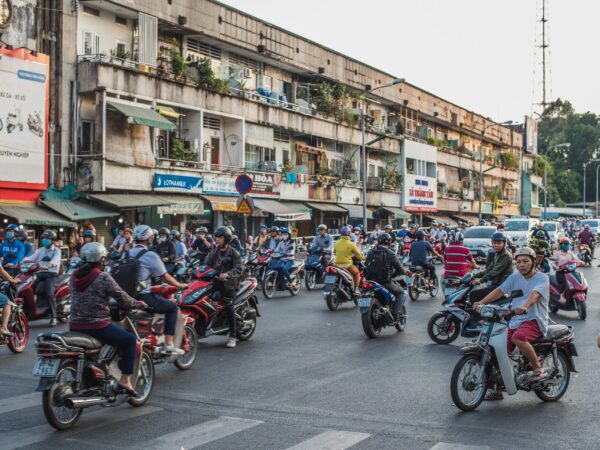The fourth outbreak of the covid-19 pandemic has nearly paralyzed our country’s economy, with all resources devoted to combating the disease. In recent weeks, however, a series of severe disease control measures have been implemented. In addition, the Ministry of Health indicated that the entire country will receive a high quantity of vaccines in the fourth quarter, expected to be between 20 and 50 million doses per month. This has instilled trust in market participants, particularly in the real estate sector.
Prices do not fall and demand remains high.
The impact of the COVID-19 outbreak has stalled real estate for nearly two years. It is tough for people to travel around. As a result, the real estate market temporarily went into “hibernation,” but as provinces and cities relax laws and travel becomes more convenient, real estate transactions will gradually rebound. According to DKRA Vietnam, the suburban land market continues to lead, while HCMC has been without fresh supply for four quarters in a row. Dong Nai continues to lead the market in terms of new supply and consumption.
The new supply of townhouses and villas in Ho Chi Minh City and nearby provinces increased sharply, about 78% compared to the previous quarter, but only concentrated in the first period of the second quarter of 2021. Compared to the first quarter of 2021, the interest in real estate search increased by 8% and 13% over the same period last year. Because of the recovery cycle of this type, there is a lot of space for growth.
More people are prioritizing long-term investments.
According to experts, the covid-19 epidemic has had a significant impact on the psychology of a large number of clients. The market is gradually taken by long-term investors and people with real housing needs. As a result, a huge number of buyers with real housing needs have moved to the suburbs.
Investors have stated that there are a variety of reasons why the suburban market attracts people during the Covid19 period. The first is the settlement demand. There is plenty of land on the outskirts for land-based enterprises and commercial townhouses. Separation in the living area has become a “magnet” that attracts the attention of consumers who have genuine housing needs.
With the fast development of inter-regional transportation infrastructure in recent years, homebuyers are less concerned about distance and more concerned about how long it will take to get there and what the living environment will be like.
Mr. Nguyen Quoc Bao, Chairman of the Vietnam Real Estate Club, claimed, “The real estate market will take two years to recover and then it will grow very quickly.” Following the pandemic, many people in Ho Chi Minh City prefer to buy property in the suburbs since prices are still reasonable, transportation is convenient, and commute time is not significantly longer than in the city. According to Mr. Nguyen Quoc Bao, transportation infrastructure projects are being prioritized by the government and provinces in order to connect and assist socioeconomic development. As a result, travel time between Bien Hoa, Long Thanh, and Nhon Trach will be shortened, allowing workers to work in Ho Chi Minh City while living in the suburbs.
Mr. Pham Viet Phuong, Chairman of Long Khanh City’s People’s Committee, stated: “Long Khanh’s residential land plan for the next ten years is to create residential areas and urban regions to keep up with the migration trend from other places. Many people will opt to live in garden houses in Long Khanh City since the Ho Chi Minh City-Long Thanh-Dau Giay expressway connects Long Khanh City and Ho Chi Minh City in less than an hour “..
In fact, despite the rapid urbanization and infrastructure development in many areas, the real estate market’s underground wave is still calm. This investment channel is still in a long-term development cycle. As a result, even during the down-trend period, when resources and demands are compressed like a pressed spring about to take the recovery’s “bounce”, it opens up many opportunities for investors.
Furthermore, during the pandemic, cash flows from investors who are unable to invest in production and consumption channels will overflow into real estate, which is always seen as a safe and long-term investment.
- Google Maps to revolutionize navigation with Satellite features, eliminating dead zones - April 22, 2024
- East Asia’s Growth Outpaces Global Average Amidst China’s Economic Challenges, Says World Bank - April 4, 2024
- EU Probes Apple, Google and Meta for Potential Violations of New Digital Law - March 27, 2024

